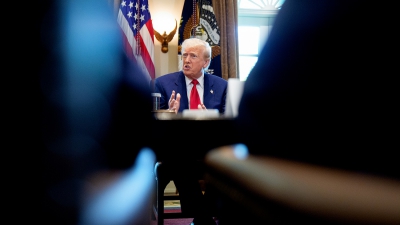Recently, Syria's transitional president Ahmed al-Shara said in an interview that US troops entered Syria without government approval, and such troop deployments should obtain the consent of the Syrian government.
According to a report on the NBC website on February 5th, two US Department of Defense officials said on the 4th that the US Department of Defense is planning to completely withdraw US troops from Syria.
U.S. President Donald Trump and officials close to him have recently expressed interest in withdrawing U.S. troops from Syria, leading Pentagon officials to begin drafting plans for a full troop withdrawal within 30, 60 or 90 days, officials said.

The report also stated that at the White House press conference last Thursday, a reporter asked a question about reports that Trump had informed the Israeli government that US troops would withdraw from Syria.
Trump responded: "I don't know who said that, but we'll make a decision on that. We're not involved in Syria. Syria itself is a mess, and they have enough trouble over there. They don't need us to get involved in everything."
At the end of 2019, Trump ordered then-Defense Secretary James Mattis to withdraw all U.S. troops from Syria. Mattis opposed the plan and eventually resigned in protest. Trump withdrew most U.S. troops from Syria but later sent them back. Since then, the U.S. military presence in Syria has continued. In December, the Pentagon announced it had about 2,000 troops deployed in Syria, more than double the roughly 900 the military had said for years.
Trump proposed a plan to withdraw troops from Syria during his first term, but it faced strong domestic opposition and serious concerns from U.S. regional allies, including Israel.
Under pressure from many parties, the United States finally gave up on completely withdrawing its troops from Syria and continued to maintain its military presence in eastern Syria, claiming that it would continue to fight against the extremist organization Islamic State.
A spokesman for the Syrian Kurdish armed forces recently stated that the organization has not been informed of any withdrawal plan of the US military. The organization also warned that the withdrawal of US troops would lead to the resurgence of regional terrorist forces.
Turkish Foreign Minister Fidan recently stated that Turkey, Iraq, Syria and Jordan will take measures to jointly establish a joint mechanism to combat the extremist organization "Islamic State".
Against the background of the sudden change in the political situation in Syria, the living space of the Kurds in Syria and the region will be further squeezed, and local non-traditional security risks will be on the rise.
It is a high probability that the Kurds' living environment will be squeezed. Although the United States may not completely give up its support for the Kurdish armed forces, it is obvious that the Kurds are a bargaining chip for the United States to make transactions.
If the United States reaches relevant agreements with Turkey and Syria, the U.S. military presence in Syria may be reduced.
The entire region currently does not have enough power to deal with the resurgence of regional terrorist forces. On the contrary, due to the long-term instability in the regional situation, some small extremist groups and organizations may take the opportunity to recruit troops or even join other extremist organizations. Non-traditional security risks in the region will rise further in the future.















